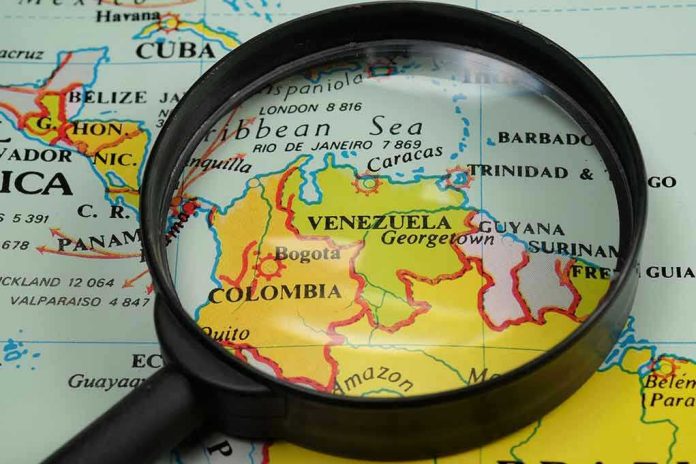
In a move that could thaw the icy relations between two nations, ten American detainees have been released from Venezuela, prompting questions about the future of U.S.-Venezuela diplomacy.
At a Glance
- Ten American detainees have been released by Venezuela.
- The release may be part of ongoing negotiations between the U.S. and Venezuela.
- The move is seen as a potential confidence-building measure.
- U.S.-Venezuela relations remain tense despite the release.
A Strategic Release Amidst Tension
Amid the tumultuous backdrop of U.S.-Venezuela relations, the recent release of ten Americans detained in Venezuela is a significant development. Historically, relations have been fraught with tension, particularly after the U.S. recognized opposition leader Juan Guaidó as interim president in 2019. This latest move, widely interpreted as part of ongoing negotiations, offers a glimmer of hope for improved diplomatic ties.
The Maduro government’s decision to release these detainees appears to be a strategic attempt to gain leverage in negotiations with the U.S. Seeking sanctions relief and international legitimacy, Maduro’s administration is making calculated moves to soften its image on the global stage. However, this gesture, while positive, is unlikely to dramatically alter the deeply entrenched animosities without more substantial policy shifts.
Implications for U.S.-Venezuela Relations
The detainees’ release is not without precedent. Historically, Venezuela has used American citizens as bargaining chips in broader geopolitical negotiations. The U.S. government, under the Trump administration, is likely to view this development as an opportunity to re-engage in dialogue aimed at addressing democratic reforms, migration, and energy cooperation. However, any substantive changes in policy or relations will require more than symbolic gestures.
For now, the release provides humanitarian relief for the detainees and their families, a small but meaningful victory amid the ongoing diplomatic standoff. The freed Americans have been repatriated, and U.S. authorities are conducting debriefings and health assessments. This event, while a step in the right direction, may not be enough to signal a broader thaw in relations.
Broader Context and Future Prospects
Venezuela’s economic and social crisis continues to be a concern for both nations. Hyperinflation, shortages, and mass emigration have left the country in dire straits, further complicating diplomatic engagement. The release of these detainees may improve Venezuela’s international image temporarily but does little to address the root causes of its struggles.
The U.S., on the other hand, must weigh its approach to Venezuela carefully. Policy debates at home will likely center on whether to engage with or isolate Venezuela further. The detainee release could set a precedent for future negotiations, potentially paving the way for discussions on broader issues like sanctions relief or democratic reforms. Still, any progress will require careful navigation of the complex power dynamics at play.







